 ‘McLibel’ documents the longest-running case in British legal history, that of McDonald’s Restaurants vs. Morris and Steel. It dragged on for seven years. McDonald’s retained the best legal team money could buy*, haemorrhaging millions in legal fees. David Morris and Helen Steel, denied legal aid because this was a defamation case**, represented themselves and spent £30,000, a defence fund contributed by supporters and well-wishers.
‘McLibel’ documents the longest-running case in British legal history, that of McDonald’s Restaurants vs. Morris and Steel. It dragged on for seven years. McDonald’s retained the best legal team money could buy*, haemorrhaging millions in legal fees. David Morris and Helen Steel, denied legal aid because this was a defamation case**, represented themselves and spent £30,000, a defence fund contributed by supporters and well-wishers.It’s appropriate, then, that the film itself has a chequered eight-year history and was made for little or nothing. Not only was David and Helen’s battle with McDonald’s an according-to-Hoyle David and Goliath saga; so was the production of the film that tells their story.
Director Franny Armstrong originally made ‘McLibel’ as an hour-long TV documentary in 1997. Cuts demanded by the BBC brought the running time down to 40 minutes. Ten days before its scheduled transmission, legal pressure was brought to bear and the BBC pulled the plug. Channel 4 showed some interest, but their legal department balked: “McDonald’s would almost certainly sue Channel 4 and would almost certainly win” (quoted in Franny Armstrong’s article in The Guardian, 19 June 1998 – click here to read the full text).
In 2005, Armstrong updated the documentary in light of David and Helen’s appeal to the European Court of Human Rights, who found that the case had violated their rights to freedom of speech and to a fair trial. Accordingly, Armstrong documented their visit to Strasbourg for the hearing and updated ‘McLibel’ into a feature length (85 minute) film.
The no-budget ‘McLibel’ is almost overshadowed by the very story it documents. And yet it holds up as a piece of film-making. Besides, to criticise it for its production values is to miss the point. David Morris and Helen Steel (and, boy, does that lady have an apposite surname!) took on a corporation who had happily bullied everyone from Time Out to the BBC into retracting and apologising for negative reporting about them. They refused to be intimidated and they refused to back down. It’s utterly in keeping that the film which champions them is itself an underdog. So forget the utilitarian camerawork, occasional deficiencies in the sound quality and the surprisingly dull courtroom re-enactments (surprisingly given that Ken Loach directed those scenes – kudos to him, though, for offering his services gratis).
‘McLibel’ kicks off with an inspired bit of scene-setting. A title crawl in bright yellow letters, hilariously reminiscent of a certain George Lucas film, announces:
A long time ago there was a company that made lots of money by selling bits of meat between two bits of bread.
Many people were employed to put the meat between the bread and many animals were killed to be the meat. A friendly clown persuaded children to love the company.
Some decades passed and all was well. The company became very, very rich. Richer even than many countries.
And then some people wrote in their newspapers than eating lots of the meat and bread could make people ill. Other people said on television that too many trees had been cut down and that the workers were unhappy.
This made the company very angry.
The company looked around the world and saw that in England there was a special law that could stop people saying things the company didn't like.
And make them say sorry.
Using interviews, news footage and (mercifully) keeping the re-enactments to a minimum, Armstrong tells the story efficiently and, certainly during the latter stages of the documentary, with some sense of pace. It all started in 1989 when David and Helen, members of London Greenpeace (not affiliated with its significantly more famous oil-rig-protesting namesake) distributed a pamphlet entitled ‘What’s Wrong With McDonald’s’.
Private detectives infiltrated the group. There’s an irony to be relished that McDonald’s outsourced from more than one firm without letting on to the existing operatives: “The spies spent as much time spying on each other”. Then, in 1990, McDonald’s slapped David and Helen with writs. The corporation was confident of an easy victory within a few weeks.
They didn’t get it. As the case dragged on, McDonald’s offered on the QT to resolve things out of court. Their only stipulation was that David and Helen discontinue public criticism of the chain and limit their anti-McDonald’s comments to privately expressed opinions to immediate friends. Helen’s response was priceless: that McDonald’s similarly discontinue advertising and only recommended the restaurants to friends.
Despite a dearth of representation, staff or funds (barrister Keir Starmer, seeing how one-sided the trial was, offered his assistance; a group of volunteers ran their campaign HQ), David and Helen managed to find witnesses – including Stephen Gardener of the District Attorney’s office, Texas, who flew over to give evidence. Gardener had investigated McDonald’s in the mid-80s over deceptive marketing. Interviewed for the documentary, he says, “The point was, the whole advertising campaign – not just one claim in one little ad – the whole campaign was intrinsically deceptive … and I do believe that for McDonald’s to call its food nutritious is lie to the public, whether the British or the American public.”
Even more damning is a comment, apropos of McDonald’s specific targeting of children in the advertising campaigns, from Geoff Guiliano, a former Ronald McDonald: “I was like the guy in the Third Reich who was the propaganda minister.” That’s right, kiddies, Ronnie McD is Goebbels in greasepaint.
Perhaps the most pertinent quote is from Helen Steel herself – a summation not just of what ‘McLibel’ is about but why they refused to back down to McDonald’s in the first place: “The government referred to fact that the protection of freedom of speech should require that campaigners put the balance in their leaftlets, McDonald’s responses for example, but there’s no requirement for McDonald’s to put the balance in their advertising.” To which Dave adds: “The campaigners are the balance and we’ll continue to campaign till there’s a just world.”
*Led by Richard Rampton, QC, who is alleged to have charged £2,000 a day for his services. Am I alone in finding that almost obscene?
*They were also denied their right to a jury. In essence, a single judge heard everything and decided the whole thing himself. So much for our wonderful English legal system.
(More information on this film and McLibel trial itself, including witness statement transcripts, can be found on the McSpotlight website.)
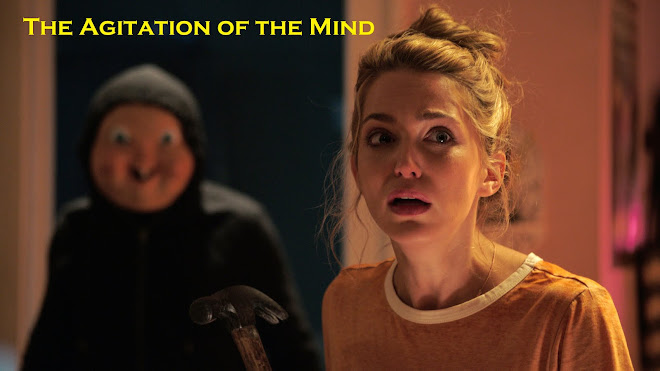
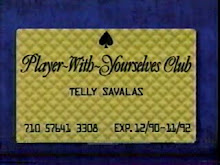
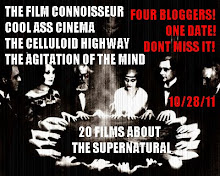
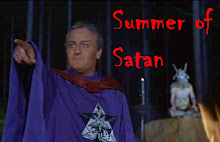
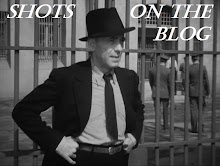











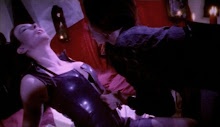





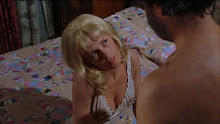
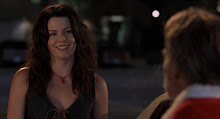








No comments:
Post a Comment